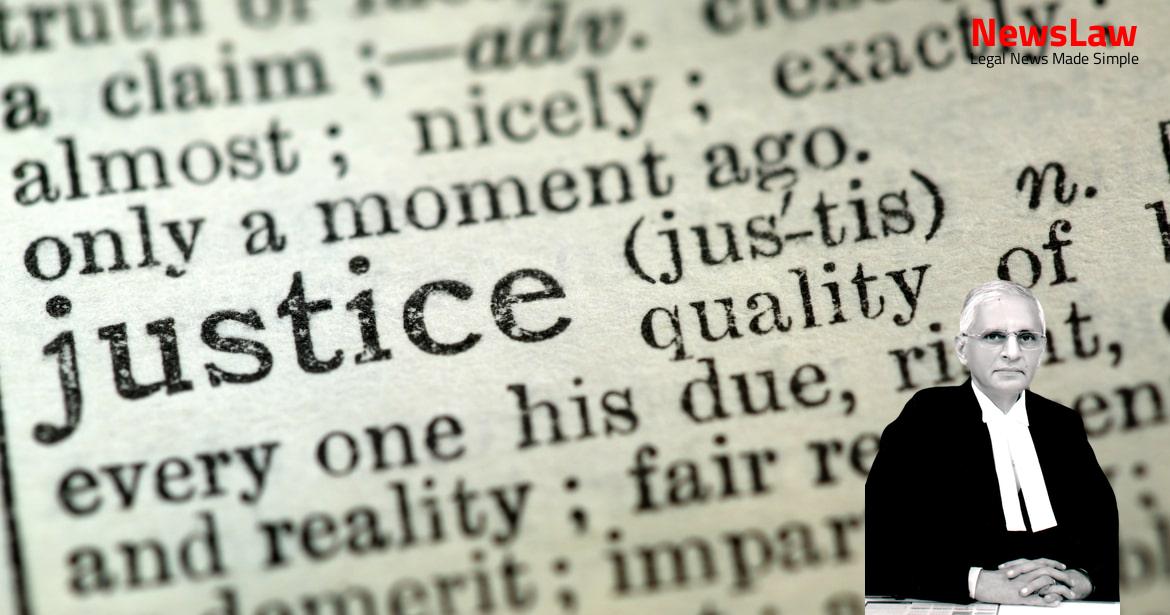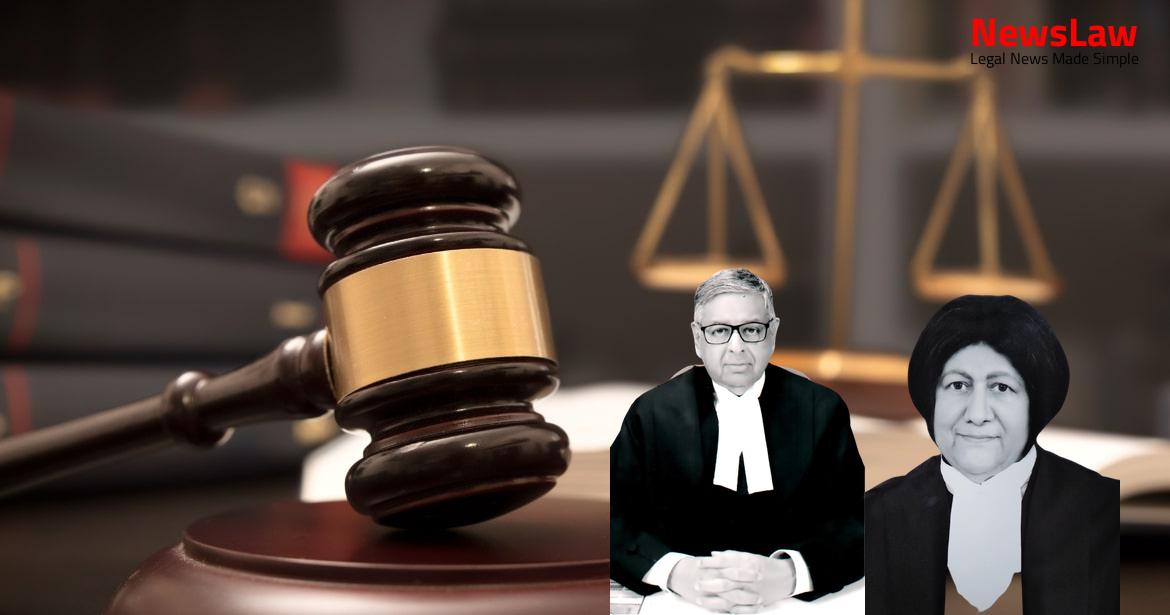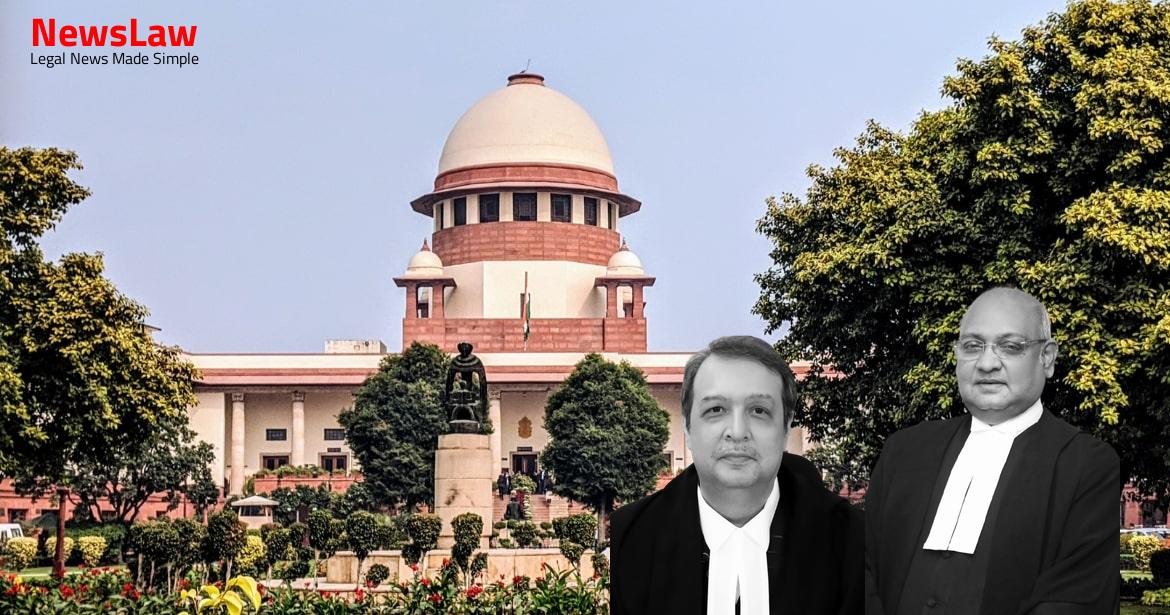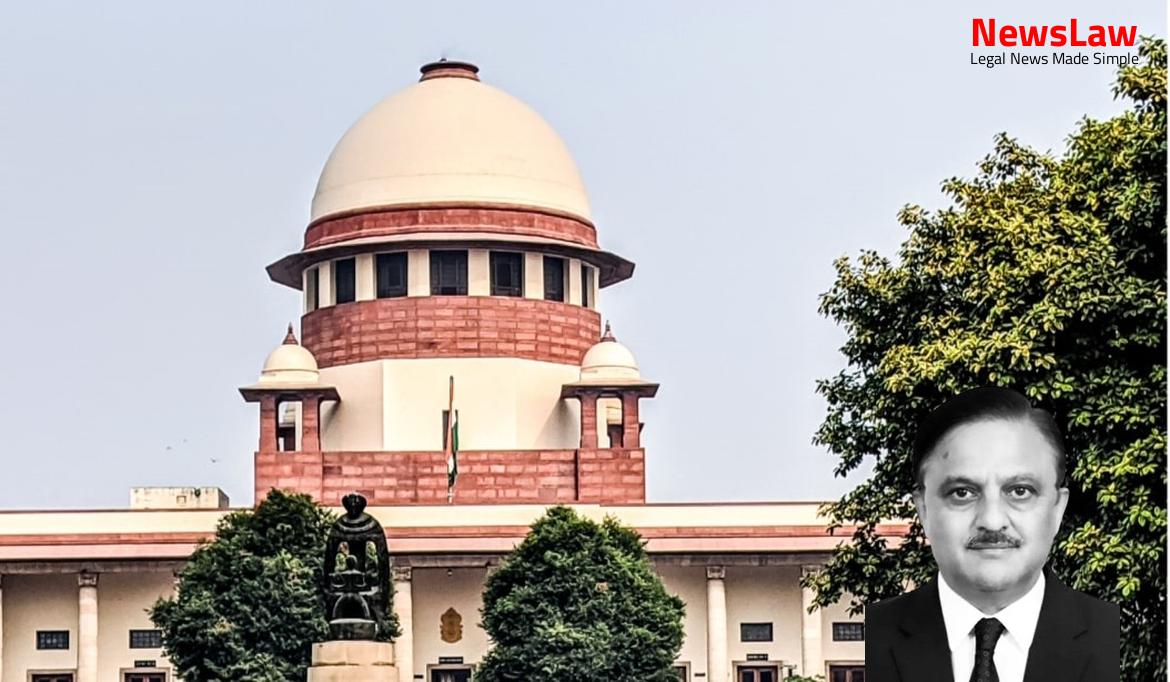Explore the insightful legal analysis provided by the court regarding the elements of cheating and breach of trust in a consultant dispute case. The court emphasized the significance of fraudulent intention as a precondition for constituting these offenses under the IPC. Understanding the nuanced legal interpretations regarding deceit and dishonesty is pivotal in comprehending the complexities of such legal matters.
Facts
- First respondent filed a complaint under Section 200 of the CrPC in 2014 alleging misuse of authority by the Appellant.
- Notice was issued and the first respondent appeared before the court.
- First respondent worked as a Consultant Neurosurgeon at BGS Apollo Hospital from 2004 to 2014.
- Services terminated on 30 May 2014 for inconsistent behavior per the Consultancy Agreement terms.
- First respondent raised irregular billing and alleged threats by the Appellant in a representation.
- Request for permission to treat patients till 30 June 2014 made on 2 June 2014.
- Emoluments enhanced to a guaranteed monthly fee of Rs 4,25,000 on 3 June 2013.
- Cognizance taken under various sections of the IPC by JMFC on 3 March 2015, challenged in revision before the Additional Sessions Judge.
- The Additional Sessions Judge set aside the JMFC’s order due to lack of disclosure of ingredients for offences of defamation or cheating.
- The order was challenged by the first Respondent in the High Court.
- The Single Judge in the impugned judgment dated 12 July 2019 found no case against the Appellant under sections 499 and 500 of the IPC.
Also Read: Balancing Power and Transparency: Electoral Bonds Struck Down, Disclosure Mandated
Issue
- The issue for determination is whether the ingredients of cheating and criminal breach of trust have been met as per the complaint.
Also Read: Recall of Resolution Plan Approval: Legal Analysis
Analysis
- The complaint filed by the first respondent outlines his engagement as a Consultant Neurosurgeon at the hospital from 2004 to 2014.
- Allegations include incorrect billing leading to reduced fees, which were brought to the attention of the hospital’s management.
- The complainant claims to have suffered a loss in professional fees and was verbally assured of reimbursement.
- The complaint lacks clear elements of deception or dishonesty by the Appellant, essential for the offence of cheating.
- The termination of the respondent’s services and improper billing are central to the grievance, not criminal aspects like deceit or breach of trust.
- Fraudulent or dishonest intention is a precondition to constitute the offence of cheating according to sections 415 and 420 of IPC.
- Section 420 deals with cheating and dishonestly inducing delivery of property.
- In Hridaya Ranjan Prasad Verma v. State of Bihar, the court interpreted sections 415 and 420 of IPC to emphasize the importance of fraudulent or dishonest intention in cheating cases.
- In Vijay Kumar Ghai v. State of West Bengal, entrustment of property is essential to establish an offence under section 405 of the IPC.
- Anwar Chand Sab Nanadikar v. State of Karnataka reiterated the essential elements of criminal breach of trust.
- A dispute arising from a breach of contract does not constitute cheating under section 415 and 420, as held in Dalip Kaur v. Jagnar Singh.
- Ingredients of the offence of criminal breach of trust are not made out based on the complaint
- No element of entrustment is established prima facie in the present matter
- High Court made a patent error in setting aside the judgment of the Additional Sessions Judge
Decision
- Pending applications disposed of
- Appeal allowed and impugned judgment set aside
- Order of the IVth Additional Sessions Judge dated 15 December 2015 in Criminal Revision Petition No 94 of 2015 restored for reasons stated
Case Title: M.N.G BHARATEESH REDDY Vs. RAMESH RANGANATHAN (2022 INSC 847)
Case Number: Crl.A. No.-001273-001273 / 2022



